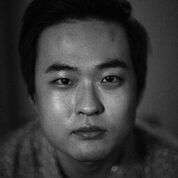|
Back
An audience favorite Calgary
Jack Singer Concert Hall
09/04/2015 - & September 7*, 2015
September 4, 2015: Collaborative Recital
Franz Liszt: Die drei Zigeuner S. 320
Piotr I. Tchaikovsky: Romance "Den' li tsarit?", Op. 47 No. 6
Johannes Brahms: Sonata for clarinet Op. 120 No. 1 – Geistliches Wiegenlied, opus 91 No. 2
Dmitri Shostakovich/Lena Auerbach: from 24 Preludes for piano Op. 34: Nos. 10, 14, 15, 16, 19 & 24
Jean Françaix: Trio for clarinet, viola and piano
September 7, 2015: Solo Recital
Franz Josef Haydn: Sonata in E major Hob. XVI/31
Robert Schumann: Humoreske in B-flat major Op. 20
Friedrich Gulda: from Play Piano Play: Nos. 4,5 & 6
Franz Liszt: Après une lecture de Dante: Fantasia quasi Sonata S. 161/7
Isabel Bayrakdarian (soprano), James Campbell (clarinet), Hsin-Yun Huang (viola), Dasol Kim (piano) 
D. Kim(Chris Krieger)
Dasol Kim, age 26, has studied both in his native South Korea and in Germany, and has considerable performance and competition experience.
For his collaborative performance he chose the “popular” program as did five of the other competitors. His introduction to the Liszt song was notably delicate (whereas others made a grand statement), and he brought a pensive quality to the Tchaikovsky song. If it lacked the usual sweep, he gave it an appropriately grand finish.
The Brahms sonata was notable for its sensitivity; he seemed to have good rapport with Mr. Campbell, as he did with Hsin-Yun Huang in the Shostakovich pieces. The Françaix trio appeared to have been well worked out, and (as usual) the Brahms lullaby went well.
His solo recital three days later turned out to be a sensation. The Haydn sonata proved a crisp opener; if the second movement Allegretto was a bit straitlaced, the final Presto had all the lightness and buoyancy one would want. Robert Schumann’s Humoreske followed - and this might well be my favorite performance of any piece throughout the competition. It was the epitome of refined sensitivity with ample dash and exuberance where required.
The next two pieces brought the house down. The three selections from Friedrich Gulda’s Play Piano Play (composed in 1971) evoke jazz at its most playful. Mr. Kim gave a relaxed and apparently spontaneous performance, thoroughly in the idiom. The final Presto possibile was just that: as fast as possible. He then redoubled audience delight with the Liszt fantasia, with its storminess (bordering on apparent madness) giving way to the meditative, then building to a big finish.
His encore was Liszt’s arrangement of Schumann’s Liebeslied (Widmung) (S. 566) in a meltingly lovely performance, a wonderful contrast after the stormy Liszt work.
If Honens gave a special award for “audience favorite solo recital” Mr. Kim might have won. I felt he was a definite possibility for the final round, but no. Had he made it that far his classical concerto would have been Beethoven’s Third, and his post-classical work Tchaikovsky’s Piano Concerto No. 1.
ABOUT THE HONENS
The Honens International Piano Competition, named for its founding donor, held its first competition in Calgary in 1992. It is open to pianists between the ages of 20 and 30 who have no professional representation, and offers the richest prize of any of the world's many such competitions: a $100,000 first prize which comes with a three-year artist development program worth $500,000. The 2015 competition was the eighth.
The main objective of the competition is to discover “the complete pianist”, and here is the procedure: Earlier this year, interested pianists applied online, submitting information on their training and experience in performances and competitions. The Applicant Screening Jury selected 50 to participate in the quarterfinals, which consisted of 40-minute recitals (with audience) filmed in Los Angeles, New York or Berlin. Each pianist also made a taped 10-minute interview. These fifty recordings and the interviews were examined by a jury of four (Canadian pianist Stewart Goodyear, Israeli pianist Inon Barnatan, Japanese pianist Noriko Ogawa, and Mary Sigmond, president of a piano recital series in Minnesota).
Ten of the 50 were selected to come to Calgary for the semifinals (running for five days beginning Sept 3), during which each one performed a 65-minute solo recital (entirely different from the earlier 40-minute recital), and a 65-minute collaborative recital accompanying soprano Isabel Bayrakdarian, violist Hsin-Yun Huang, and clarinetist James Campbell. (Each pianist chose one of three programs for these collaborative recitals.) Each pianist had a two and one-half hour session with the collaborators, plus a dress rehearsal.
After the semifinal round, three pianists were chosen for the two final concerts with the Calgary Philharmonic Orchestra under Yan Pascal Tortelier. For the first concert they each chose a concerto from a list of classical era works, and for the second concert they played a work of their own choosing from the post-classical era. The jury for the semifinal and final rounds consisted of three pianists (Alessandra Ammara, Janina Fialkowska, and Pedja Muzijevic ) and four arts managers: Paul Hughes (General Manager of the BBC Symphony Orchestra), Jeremy Geffen (Director of Artistic Planning for Carnegie Hall), Charles Hamlen (a founder of IMG Artists), and Costa Pilavachi (Senior Vice President of Classical Artists and Repertoire for Universal Music Group).
The jury assigned scores to each segment of the process, with each of the solo and collaborative recitals worth 30% of the final score, and each of the two concerto performances worth 15%. Ten percent of the final score was based on a 15-minute interview (taped) with an arts journalist.
The next competition will be in 2018.
Complete information on Honens can be found on the website.
Michael Johnson
|